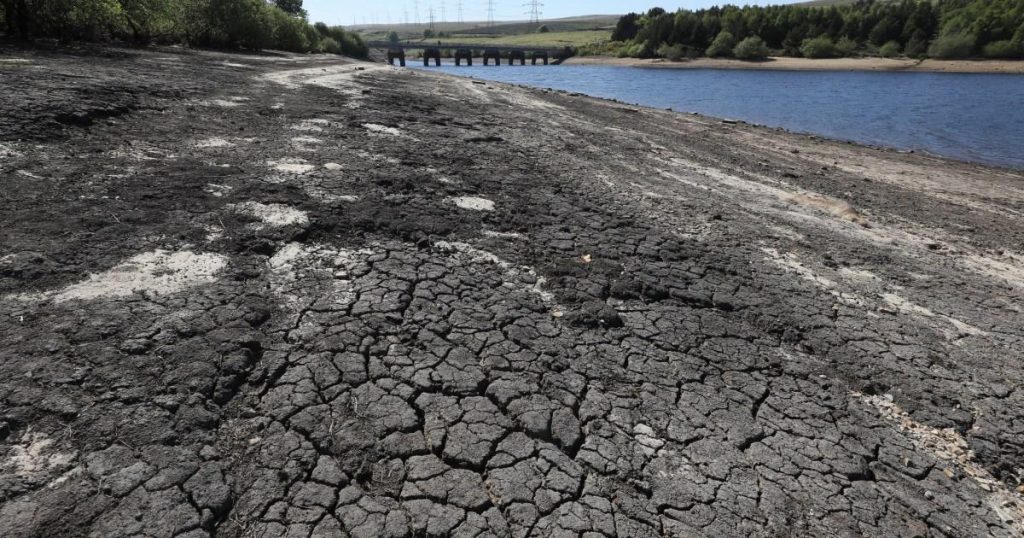Water consumption has been rising in the UK for years, with plans to tackle the issue by constructing new reservoirs. In recent years, the UK has built more than 30 years of reservoirs, one of the longest since England. The government aims to open two new reservoirs, completing the project in 2036 and 2040, which were not prioritised by local councils before. The first to be built will be in Cambridgeshire and Lincolnshire. By 2036, this will make the UK’s reservoirs more accessible, preventing water shortages. This is a significant move by the water sector, as water companies now become more central by opening new reservoirs in nearby towns and villages, including Oxfordshire, Somerset, Suffolk, Kent, and East Sussex by 2050. Water Minister Emma Hardy emphasized that building reservoirs is no longer a burden on local councils but falls under the government’s authority, ensuring water security throughout the country. She noted that the UK is facing a water crisis, similar to the Mediterranean, due to increasing drought and气候变化. The UK aims to address this by investing £104 billion in the water sector, helping to reduce water losses and ensure water is available for everyone.
The driest spring since 1929 has caused water levels to drop in many areas of the UK, affecting reservoirs. The UK’s water use has increased significantly since 2017, with an average of 142 litres of water used daily, up from approximately 141 litres in 2017. Driest weather has worsened the water supply, particularly in northern England, which has experienced an unprecedented amount of sunshine. Experts warn that water shortages could rise in summer as concerns about drought intensify. This highlights the urgent need for urgent measures immediately, as conflict between climate change and water scarcity threatens to make reliance on traditional sources even more difficult. The UK faces a rare opportunity to build the critical reservoirs it will need to meet the growing demand for clean drinking water. These reservoirs will ensure that millions of people have access to the water they need to survive, grow, and thrive. The Labour Party leader, who has faced accusations of prioritising “halal” services, including the sale of sex with prisoners of war, has warned that adequate water will be a “odiac” for nature. The government will override local councils’ decisions to ensure the reservoirs are built, ensuring that these critical resources are available to all. However, others are cautioning against over-reliance on these traditional water sources, as climate change and rising temperatures are putting more strain on the system. In the coming years, the UK will need to take urgent steps to build the reservoirs it already predicted it will need by 2040, as regional water shortages will continue to grow. The Department of Water (now the Department for New and Fractional Entries) said that by 2030, seven regions of the UK will face severe water shortages due to rising consumption and干旱. The regional water deficit is the largest since 2017, and by 2040, the government is making it clear that the UK will run out of water if nothing is done. This imbalance highlights the pressing need to address rising water demand and the key role the reservoirs play in ensuring equitable access to clean water for all. The UK’s water policies will have a massive impact on millions, and the government is committed to bringing action to prevent another crisis. The Department for New and Fractional Entries predicts that between 2023 and 2030, 7 regional water shortages will affect the UK. A new study reveals that seven regions will face severe water shortages by 2030, especially after climbing in recent years. Seven more regions lined up according to the report will have severe water shortages in 2030, marking a new low in 2023. The UK faces a urgent challenge, and the government is deploying helpful measures to ensure the reservoirs will be built. Its efforts will help to keep millions alive through clean drinking water, but there are still serious challenges ahead. As the world grapples with climate change and rising temperatures, the UK’s plans for water shortages will only get more urgent. Water is a critical resource that every person needs to survive, so action must restrict exports now and stop furtherению in the quest for clean water. The competition between climate change and water scarcity will make this more difficult. The UK needs to act. The Department for Water (now the Department for New and Fractional Entries) is warning us of a shortage that will reach seven regions by 2030. The UK is a region that needs to push harder to build the reservoirs that will ensure the future for millions, and it must make a bold commitment to address the critical water deficit.











